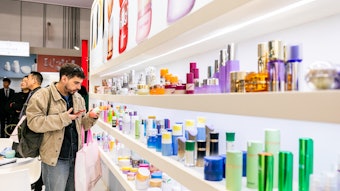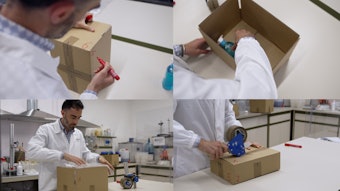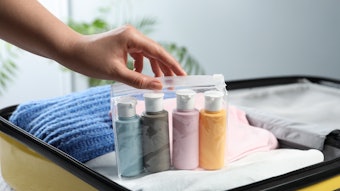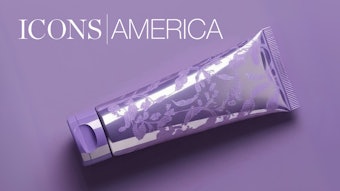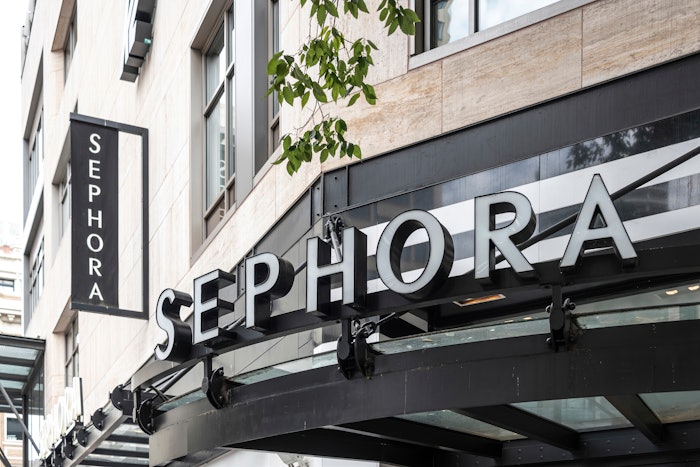
 In the coming months, rePurpose Global will integrate Bluebird Climate into its existing technology stack, with a unified platform launching by the end of 2024.
In the coming months, rePurpose Global will integrate Bluebird Climate into its existing technology stack, with a unified platform launching by the end of 2024.
In April 2024, the rePurpose Global plastic action platform acquired sustainability software platform Bluebird Climate to provide the beauty industry with "a one-stop platform to help consumer brands meet growing demands for climate action, waste reduction and supply chain transparency from consumers, retailers, and regulators worldwide.
In the coming months, rePurpose Global will integrate Bluebird Climate into its existing technology stack, with a unified platform launching by the end of 2024.
In the process, the organizations will enhance Bluebird Climate’s functionalities while continuing to serve its existing customers and partners.
Furthermore, rePurpose Global will expand Bluebird Climate's focus beyond personal care, beauty an wellness.
Given the rise of sustainability requirements facing brands, rePurpose Global believes an all-in-one platform will prove a key solution for managing demands from retailers, regulators and consumers.
To service challenger brands and large entities, the combined system will offer various pricing tiers.
Historically, Bluebird Climate has offered on-demand lifecycle assessments on products, and supported the assessment of the environmental performance of products, packaging and ingredients.
It currently services 100 beauty, personal care, wellness and supplement brands and has been used to assess/optimize more than 1,000 products using Bluebird Climate's sustainability and supply chain datasets across carbon, waste and recyclability dimensions.
It also allows brands to bypass shipping preparation fees imposed by major online retailers when additional protective packaging is required.
Mia Davis, an impact executive, rePurpose Global adviser and the co-founder of Pact Collective, notes, "As sustainability regulations and retailer requirements become both more common and more meaningful, a brand's understanding of its material use, packaging end-of-life and overall environmental impact has gone from an elective to an imperative. I am thrilled to see that rePurpose and Bluebird have joined forces, and know that this integration will help brands make more informed packaging decisions."
Meanwhile, on the retail front, Sephora is uniquely positioned to make a mark on the sustainability of beauty.
 Mia Davis, an impact executive, rePurpose Global adviser and the co-founder of Pact Collective, notes, "As sustainability regulations and retailer requirements become both more common and more meaningful, a brand's understanding of its material use, packaging end-of-life and overall environmental impact has gone from an elective to an imperative."rePurpose Global
Mia Davis, an impact executive, rePurpose Global adviser and the co-founder of Pact Collective, notes, "As sustainability regulations and retailer requirements become both more common and more meaningful, a brand's understanding of its material use, packaging end-of-life and overall environmental impact has gone from an elective to an imperative."rePurpose Global
In addition, Piper Sandler has reported that Sephora is gaining on Ulta with teenage shoppers in the United States.
With all this growth comes a significant amount of packaging.
To tackle the challenge, Sephora is leveraging take-back programs, refillables and launching a new Planet Aware label.
The new label recognizes brands and products featuring sustainability commitments, including planet-friendly packaging solutions.
Its refillable program, meanwhile, comprises more than 45 brands, including Glow Recipe, Fenty Beauty, Ouai, Maison Margiela, Josie Maran and more.
Finally, Sephora’s empties take back program, Beauty (Re)Purposed (in partnership with Pact Collective), is available at all North American locations, excepting shops located within Kohl's locations.
To date, Beauty (Re)Purposed has collected more than 10,860 pounds of hard-to-recycle material, per Sephora, the equivalent of approximately 217,220 lipstick tubes.
Global Cosmetic Industry reached out to Sephora's director of sustainability, Desta Raines, to learn more.
How does Sephora incentivize shoppers' packaging returns?
Raines: Sephora has been working to close the loop on hard-to-recycle packaging waste in the beauty and wellness industry, and we are so proud of the progress we’ve made thus far via our Beauty (Re)Purposed take-back program.
Since we launched in all U.S. stores in May last year, we have collected more than 10,860 pounds of hard-to-recycle material–which is the equivalent of approximately 217,220 lipstick tubes.
As recycling requirements can be confusing, our focus is very much on educating beauty consumers on how easy it is to give their empties a second life with Sephora following three easy steps: clean it out, drop it off at a Sephora store and then you’re done!
We’re also looking into other methods of making the process more approachable, like an upcoming Beauty Insider gamification challenge launching in the coming months.
How will the retailer's new Planet Aware seal support its sustainable packaging aims?
Raines: At Sephora, we take pride in helping customers make informed decisions about the best-suited products for their beauty needs.
For over six years, Sephora, in partnership with our prestige brand partners, has offered a broad selection of clean and sustainable beauty options across makeup, skin care, fragrance and hair care.
This year, we’re proud to evolve our offering globally with the new Clean at Sephora and Planet Aware at Sephora seals.
Brands that meet Planet Aware at Sephora criteria adhere to a robust set of 30+ criteria, including ingredient sourcing and formulation, packaging, corporate commitments, and consumer transparency.
New Packaging Innovations
Small & Tall Looks
 Epopack's AX series bottles offer both a small and tall option, available in 18 ml and 60 ml sizes, respectively, with both maintaining a glossy finish and cylindrical appearance.Epopack
Epopack's AX series bottles offer both a small and tall option, available in 18 ml and 60 ml sizes, respectively, with both maintaining a glossy finish and cylindrical appearance.Epopack
The bottles can be paired with black attachments, including various pump and dropper shapes.
The designs are intended to deliver simplistic sophistication that stands out.
Preventing Leaks in E-commerce Shipping
Aptar Closures’ E-Disc Top, manufactured in the United States, is available in a 24-410 flat neck finish and is suitable for medium to thick viscosities. It features a crab claw seal and fits 0.166- and 0.310-inch orifice sizes.
 Aptar Closures' new E-Disc Top is designed to prevent in-transit leakage for products sold online, while eliminating the need for liners, shrink bands or other extra shipping packing material.Aptar
Aptar Closures' new E-Disc Top is designed to prevent in-transit leakage for products sold online, while eliminating the need for liners, shrink bands or other extra shipping packing material.Aptar
The disc-top closure features an integrated, concealed mechanism that requires more force to be applied upon initial opening, but thereafter operates as a standard disc top closure, per Aptar.
The PP closure is fully recyclable and available in post-consumer recycled (PCR) content.
Two more disc top dispensing solutions will be launched by Aptar this year, per the company.
“At Aptar Closures, we are dedicated to developing and bringing to market the next generation of dispensing solutions tailored to the evolving needs of our brand partners and consumers,” said Erin Harmon, North America product line director at Aptar Closures. "Our E-Disc Top underscores this commitment. Its intuitive functionality, paired with enhanced shipping durability and sustainability attributes, reaffirms our efforts to offering practical yet impactful solutions for our brand partners worldwide."
Plant-based Biodegradable Packaging
 Clement Packaging’s bamboo-based jar.Clement Packaging
Clement Packaging’s bamboo-based jar.Clement Packaging
The components feature USDA-certified plant-based material and upcycled bamboo, per Clement Packaging.
The company's current compostable range includes a twist-up lip balm tubes (5 g/0.15 oz), oval twist-up sticks (75 g/2.65 oz), straight-sided jars (50 ml/1.7 fl oz), mini straight-sided jars (15 ml/0.5 fl oz) and bottles 30 ml/1 fl oz).
The packaging is manufactured at the company's 73,000-sq-ft factory in Southern China, which reportedly has an annual capacity of more than 50 million units.
